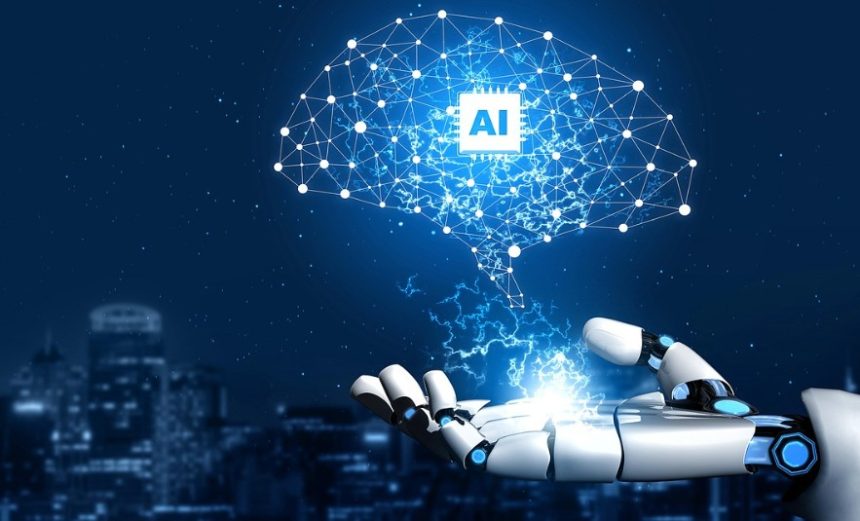AI at the Heart of UK Jobs Market Slump: Tech Revolution or Economic Turmoil?
AI is stepping into the UK job market, and not quietly.
The rise of artificial intelligence is starting to blur the lines between cyclical economic pain and technological disruption. While Britain’s economic turbulence remains the main drag on employment, AI is gradually shifting the employment landscape.
Ask ChatGPT if AI is fuelling job losses, and it answers bluntly: “Yes, AI is contributing to job losses in the UK, but its impact is nuanced and varies by industry, skill level, and job function.” It’s not the sole villain. But it’s certainly in the room.
Big names are already making moves. BT has linked its upcoming job cuts to AI advances. Amazon, Microsoft, Ocado – all shedding staff while leaning further into automation. Microsoft’s global layoffs this year alone affect 9,000 roles. And it’s not just blue-collar jobs; the white-collar world is feeling the squeeze too.
Despite this, many economists insist AI isn’t yet the core driver behind the UK’s labour market slowdown.
ChatGPT breaks it down. Here’s the bigger picture:
- Spiralling employment costs
- Soaring interest rates
- An overall economic lull
- Weakening hiring appetite
- The workforce is settling into a “new normal.”
These aren’t small issues. The UK’s unemployment rate rose to 4.6% by April, its highest in over two years. And that’s not the whole story. HMRC records show 276,000 jobs have vanished since the autumn budget. Grim reading for anyone entering or trying to stay in the workforce.
Employers are grappling with higher national insurance contributions and a national living wage bump. It’s hitting hiring plans hard. Bank of England surveys say many are holding back.
Growth forecasts don’t offer much hope. Economists expect around 1% GDP growth in 2025, painfully low by historical standards. Throw in Trump’s unpredictable trade stance, high inflation, and eye-watering borrowing costs, and it’s a perfect storm.
In this climate, AI seems more than just a shiny toy. It’s becoming a strategy.
Take Next. It’s not cutting staff, but it is investing in mechanisation. It’s a choice many others are considering. A recent Boston Consulting Group survey showed 50% of UK firms plan to shift funds from payroll to AI.
The International Monetary Fund warns that 60% of jobs in advanced economies like the UK could be exposed to AI, with half of which could be negatively impacted.
AI’s popularity is soaring on earnings calls, too. In early 2025, over 200 mentions of AI were recorded among UK-listed firms, a tenfold increase compared to just a few years ago, according to AlphaSense data.
Some industries are bracing for real shake-ups. KPMG flags sectors like content creation, translation, programming, legal services, and public relations as most exposed. Already, AI-generated ads, emails, press releases, and helpdesk bots are becoming the norm.
Young workers are bearing the brunt. University graduates are facing the toughest job market since 2018. Entry-level positions have plummeted by a third since ChatGPT’s debut. Why? Because it’s the easy, automatable tasks that juniors are usually handed.
Still, there’s another side to the story. AI could take over the dull bits, giving humans space to focus on creative, strategic, or complex work. Some jobs will vanish, yes. But new roles are emerging in their place.
Government data claims £44 billion in AI investment since last year has created 13,250 new jobs. Tech giants like Google, Amazon, BT, and IBM are now part of a public-private push to train 7.5 million Britons in AI skills.
“When you look at any technology, it creates jobs – not just destroys them,” says Yael Selfin, KPMG UK’s chief economist. “There will be destruction. [But] overall, net-net I’m not sure we’ll see fewer jobs, but they are likely to be different jobs.”
History’s seen it before. Luddite fears in the 1800s proved premature. Economists still point to those early days as a warning against underestimating innovation’s long-term benefits.
That said, the path forward still needs careful handling, from how to retrain displaced workers to how the financial gains are shared. For some, AI will mean more fulfilling work. For others, bigger profits. But the transition? It won’t be seamless.
Right now, the UK’s employment woes are mostly economic. But AI is creeping in fast.
Whether it becomes a threat or a tool will depend on how policymakers, businesses, and workers respond in the months ahead.






